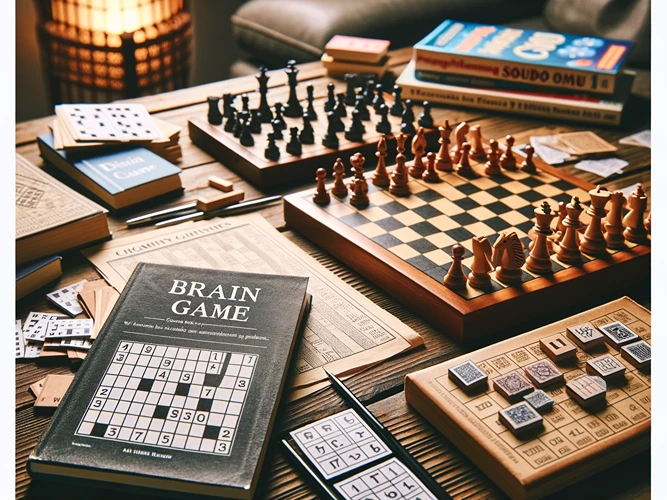Struggling to maintain focus during study sessions? The key to unlocking your full academic potential might lie in specific exercises to enhance concentration. This article delves into a variety of exercises designed not only to improve your focus but also to significantly boost your study efficiency. Discover how integrating these exercises into your daily routine can transform your productivity and elevate your learning experience.
Why Focus and Efficiency Matter
In the realm of educational achievements, the ability to concentrate and study efficiently stands as a cornerstone. It’s not just about the hours put in but how effectively those hours are used. Enhanced concentration and study efficiency not only improve academic performance but also reduce stress and increase free time for other pursuits.
Physical Exercises to Boost Brain Power
Physical activity isn’t just about keeping fit; it’s a direct investment in your cognitive health. Various exercises can stimulate brain function, leading to improved concentration and efficiency in your studies. Let’s explore how incorporating regular movement into your routine can transform your mental landscape.
The Impact of Aerobic Exercises
Aerobic exercises, known for improving cardiovascular health, are also pivotal in enhancing brain function. How does increasing your heart rate benefit your brain, you might wonder?
- Running or Jogging: Not merely a way to stay fit, running for 30 minutes can boost cognitive flexibility, allowing your brain to juggle multiple concepts simultaneously—a handy skill during exam prep.
- Swimming: This full-body workout is not only therapeutic but also enhances memory and mood. The rhythmic nature of swimming and breath control plays a role in stress reduction, which is crucial for optimal cognitive function.
- Cycling: Regular cycling sessions contribute to increased brain connectivity and efficiency. This means better memory, faster processing speed, and improved problem-solving abilities.
Helpful Hint:
To make aerobic exercise a consistent part of your life, start small. Even a brisk 15-minute walk each day can pave the way for more intense activities. The key is to find what you enjoy so it becomes a sustainable part of your routine.
Yoga and Mindfulness for Concentration

Yoga and mindfulness are not just trends but powerful tools for enhancing mental clarity and concentration. But how exactly do they contribute to cognitive performance?
- Yoga Practices: Engaging in yoga, especially styles like Hatha that combine physical poses with deep breathing, can significantly lower stress levels. This reduction in stress opens up mental bandwidth for improved concentration and memory recall. Practicing yoga for just 20 minutes a day can elevate your cognitive performance, particularly in areas requiring sharp attention and memory.
- Mindfulness Meditation: Incorporated into many yoga practices, mindfulness meditation encourages you to stay present and aware. This practice can dramatically decrease mind-wandering and distractions, leading to better focus and concentration. Regular meditation sessions can transform your study sessions, making them more productive.
Strength Training’s Cognitive Benefits
Often overshadowed by aerobic exercises and yoga, strength training also plays a vital role in enhancing cognitive function. Engaging in resistance or weight training can improve executive function, attention, and memory. This is because strength training, like aerobic exercise, increases heart rate, which in turn promotes brain health.
- Integrate basic strength training exercises, such as squats, push-ups, or dumbbell routines, into your weekly exercise regimen.
- Two to three sessions per week can lead to noticeable improvements in your ability to focus and process information.
Incorporating a mix of aerobic exercise, yoga, and strength training into your weekly routine can create a powerful synergy that enhances your brain’s function. This holistic approach not only keeps your body healthy but also primes your mind for peak performance during study sessions.
Mental Exercises for Sharpening Focus

While physical exercises lay the foundation for a healthy brain, mental exercises are the tools that sculpt and refine cognitive abilities, leading to enhanced concentration and productivity. Engaging regularly in activities designed to challenge the brain can lead to significant improvements in academic performance.
Brain Games and Puzzles
Brain games and puzzles are not merely entertainment; they’re an effective workout for your mind. How do these activities exactly benefit your cognitive functions?
- Sudoku and Crosswords: These puzzles challenge your problem-solving skills and improve pattern recognition, enhancing your ability to concentrate on complex tasks.
- Chess: Beyond being a game of strategy, chess stimulates the brain’s problem-solving capabilities, improves memory, and teaches patience and concentration. Regular engagement in chess has been linked to better academic performance and cognitive agility.
- Memory Games: Memory games bolster your working memory and processing speed, critical components of effective study and learning.
Helpful Hint:
Allocate a specific time in your day for brain games, treating them as essential exercises for your mind. This structured approach can turn a fun activity into a powerful tool for cognitive enhancement.
The Pros and Cons of Brain Games for Concentration
Pros
- Improves cognitive functions such as memory, problem-solving skills, and pattern recognition.
- Offers a fun and engaging way to boost brain power and concentration without the need for special equipment or a lot of time.
- Can be easily incorporated into daily routines, providing flexibility in when and how to practice mental workouts.
Cons
- May become less effective over time as the brain adapts to the games, requiring progressively more challenging tasks to see benefits.
- Excessive focus on brain games might lead to neglect of other important aspects of brain health, such as physical exercise and social interaction.
- Not all games are created equal; some might offer minimal cognitive benefits or fail to engage the user sufficiently to impact concentration.
Reading for Pleasure
Diving into a good book does more than transport you to another world; it strengthens your brain. What makes reading such a potent exercise for enhancing focus?
- Engagement: Reading requires active engagement, unlike passively watching TV or scrolling through social media. This active engagement forces your brain to concentrate, building its capacity over time.
- Variety: Exposing yourself to different genres introduces new vocabulary, ideas, and ways of thinking, fostering cognitive flexibility.
- Empathy and Understanding: Literature, especially fiction, can improve empathy and understanding of human emotions and motivations, enriching your perspective and enhancing emotional intelligence.
Writing as a Tool for Focus
Writing, whether journaling, creative writing, or note-taking, is a powerful exercise to enhance concentration and memory. How does the simple act of writing benefit your brain?
- Clarity of Thought: Writing requires you to organize your thoughts clearly, improving your ability to focus and articulate ideas.
- Memory Recall: The process of writing by hand engages different parts of the brain, aiding in the retention of information.
- Creative Thinking: Creative writing, in particular, encourages you to explore ideas beyond conventional boundaries, stimulating creativity and problem-solving skills.
Stats:
A study found that students who engaged in leisure reading showed higher cognitive scores compared to those who did not.
Nutrition and Concentration
What you eat also impacts your ability to focus and study efficiently. Foods rich in antioxidants, healthy fats, vitamins, and minerals can boost cognitive functions and concentration levels.
Brain-Boosting Foods
Incorporating foods such as blueberries, nuts, fish rich in Omega-3, and green leafy vegetables into your diet can provide the nutrients your brain needs to function at its best.
- Blueberries are known for their antioxidant properties, which can combat stress and boost focus.
- Walnuts and fatty fish are rich in Omega-3 fatty acids, essential for brain health.
- Green leafy vegetables are loaded with vitamins that enhance cognitive function.
Creating an Optimal Study Environment
An often overlooked aspect of maintaining concentration is the study environment itself. The space where you learn can significantly impact your focus and productivity.
Minimalist Setup
A clutter-free desk can lead to a clutter-free mind. Keeping your study area organized and minimalistic reduces distractions and improves focus. Choose a comfortable chair and desk, and keep only the essentials within reach.
- Invest in storage solutions to keep your workspace tidy.
- Use organizers or digital apps to keep track of your study materials and deadlines.
Lighting and Ventilation
Good lighting is crucial for reducing eye strain and maintaining alertness. Natural light is ideal, but if that’s not possible, ensure your space is well-lit with lamps that mimic daylight. Adequate ventilation keeps the air fresh and can help you stay alert and focused.
- Position your desk near a window if possible.
- Consider an air purifier or plants to improve air quality in your study space.
Noise Control
Some students prefer complete silence, while others thrive with background noise. Understanding your preference and controlling the sound environment can enhance concentration.
- Use noise-canceling headphones if you prefer silence.
- Try ambient sounds or instrumental music if background noise helps you focus.
Time Management and Study Techniques
Effective time management and employing the right study techniques are pivotal for enhancing study efficiency and concentration.
Pomodoro Technique
The Pomodoro Technique involves breaking your study time into intervals, traditionally 25 minutes in length, separated by short breaks. This method can prevent burnout and keep your mind fresh and focused.
- Use a timer to divide your study sessions into focused intervals with 5-minute breaks.
- After four Pomodoro sessions, take a longer break of 15 to 30 minutes.
Active Learning Strategies
Active learning involves engaging with the material through discussion, teaching, or application, rather than passive reading or listening. This engagement can significantly improve concentration and retention of information.
- Summarize what you’ve learned by teaching it to someone else or writing it down in your own words.
- Use flashcards, quizzes, or practice problems to test your knowledge actively.
Helpful Hint:
Create a study schedule that includes different types of learning activities. Variety can keep you engaged and improve your concentration.
Emotional Well-being and Stress Management
Lastly, managing stress and maintaining emotional well-being are crucial for sustained concentration and study efficiency.
Regular Breaks and Leisure Activities
Taking regular breaks and engaging in leisure activities are essential for recharging your mental batteries. These breaks can prevent burnout and improve overall concentration when you return to studying.
- Incorporate short breaks into your study routine to rest your mind.
- Engage in activities you enjoy, such as sports, hobbies, or spending time with friends and family, to relax and unwind.
Stress Reduction Techniques
Practicing stress reduction techniques can help maintain your mental health and improve your focus. Techniques like deep breathing exercises, meditation, or yoga can lower stress levels and enhance concentration.
- Allocate time for mindfulness or meditation exercises daily.
- Explore different stress-reduction techniques to find what works best for you.
FAQs
Wrapping Up
Enhancing concentration and study efficiency involves a blend of physical exercises, optimal study environments, effective study techniques, and managing emotional well-being. By incorporating these strategies into your routine, you can improve your focus, retain information more effectively, and achieve academic success while maintaining a healthy balance in your life. Remember, the key is consistency and finding what works best for you.
Additional Resources
- BrainFacts.org: A neuroscience resource that provides a wealth of information on how the brain works, including how exercise and mental activities impact cognitive function.
